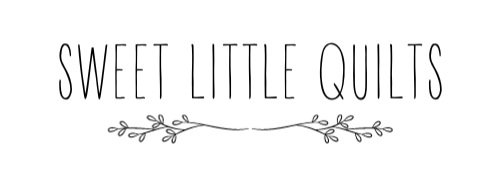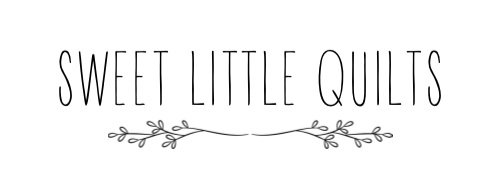The Creative Courage to Call Yourself a Quilter
The Creative Courage to Call Yourself a Quilter: Why Your Imperfect Stitches Create Perfect Ripples
The moment you stop apologizing for your quilts, you give someone else permission to start making theirs.
I used to end every quilt reveal with a disclaimer. "The points don't quite match here..." "I know this binding is wonky..." "It's not perfect, but..." Until one afternoon, I realized I was training everyone to see my flaws instead of my growth.
But here's what I've discovered in the years since I stopped apologizing for my stitches: the quilts we're most afraid to share are often the ones that change everything for someone else.
The Courage Ripple: How Imperfect Work Creates Perfect Permission
When we share our imperfect quilts, the ones with slightly off points, the wonky binding, the color choice we second-guessed, we do something radical. We normalize the learning process. We show that creativity isn't about perfection; it's about showing up and making something beautiful anyway.
Last month, I received a message from Sarah who'd been following my work for two years without ever picking up a needle. "I finally started my first quilt," she wrote, "because you shared that yours weren't perfect either, and I realized mine didn't have to be."
This is the ripple effect in action. My willingness to share a quilt with imperfect points gave someone permission to begin. Her beginning will inspire someone else. The courage spreads, one imperfect stitch at a time.
Why Perfect Quilts Actually Discourage Quilters
Here's the uncomfortable truth: when we only share our most polished work, we inadvertently create barriers for others. That beginner scrolling through flawless feed after flawless feed doesn't think, "Wow, I should try quilting!" They think, "I could never make something like that."
But when they see your slightly puckered border or your hand-quilted stitches that vary in size, something shifts. Suddenly, quilting becomes accessible. Suddenly, they can envision themselves learning, growing, making beautiful imperfect things.
Your wonky quilt might be exactly what someone needs to see to believe they can start their own quilting journey.
The Stories Our Imperfections Tell
Every mismatched point tells a story of trying something challenging. Every slightly uneven binding speaks of perseverance. Every color choice that "didn't quite work" reveals a maker willing to take creative risks.
When quilter and author Gwen Marston famously said, "The crooked line shows the hand of the maker," she wasn't just talking about technique … she was talking about humanity. Our imperfections aren't flaws to hide; they're evidence of our courage to create.
Consider the antique quilts we treasure most. Do we love them because every point is perfect? No. We love them because we can feel the maker's presence in every stitch, including the ones that went slightly askew. Those "imperfections" make them irreplaceably human.
The Permission You're Already Giving (Whether You Know It Or Not)
Every time you share your work, imperfect as it may be, you're granting permission to someone else. Permission to:
Start before they're ready
Share before it's perfect
Call themselves a quilter even if they're self-taught
Experiment with color without fear
Make mistakes and keep going anyway
Value process over perfection
Rachel, another quilter who follows my work, started sharing her own quilts after seeing me post a story about a project where I'd sewn an entire border on backwards. "If you can laugh about your mistakes and still call yourself a quilter," Rachel told me, "then maybe I can too."
The Compound Effect of Creative Courage
When you share your imperfect work, you don't just inspire one person, you create a multiplying effect. Sarah starts quilting because she saw my wonky binding. She shares her first attempt, complete with uneven blocks, and inspires her sister to try. Her sister's enthusiasm spreads to her quilting guild. One imperfect quilt becomes a dozen new quilters.
This is how creative movements spread—not through perfection, but through permission. Not through flawless technique, but through authentic vulnerability.
What Happens When We Stop Apologizing
The day I stopped prefacing my work with apologies was the day everything changed. Instead of training viewers to see my flaws, I started pointing out what I'd learned, what I'd tried, what had surprised me in the process.
"This border taught me so much about taking my time with measurements."
"I love how this unexpected color combination turned out."
"This was my first attempt at paper piecing, and I'm proud of how I problem-solved through the tricky bits."
The responses shifted immediately. Instead of reassuring comments about how "it's better than anything I could make," I started receiving questions: "How did you choose those colors?" "What would you do differently next time?" "I want to try paper piecing too—any tips?"
The conversation changed from comfort to curiosity. From resignation to inspiration.
Your Imperfect Work Is Someone's Perfect Beginning
That quilt you're hesitating to share, the one where the fabric choice feels too bold, the points don't quite meet, the quilting feels uneven, might be exactly what someone needs to see to begin their own creative journey.
Your willingness to be imperfect in public creates space for others to be imperfect in private (and eventually, in public too). Your creative courage becomes contagious, spreading through the quilting community like morning light through fabric.
The Invitation to Begin
So here's my invitation: share the quilt. Post the work-in-progress. Talk about what you learned instead of what went wrong. Let your creative light shine, wobbly stitches and all.
Because somewhere, someone is waiting for permission to call themselves a quilter. Someone is hoping to see that it's okay to be learning, growing, making beautiful imperfect things. Someone needs to see your courage to find their own.
Your imperfect quilt might be the perfect beginning for someone else's creative journey. And isn't that the most beautiful ripple effect of all?
What would you create if you knew your courage could inspire someone else to pick up a needle? Share your thoughts in the comments below—I'd love to hear about the quilts or quilters that gave you permission to begin.
Until next time … Debbie!

